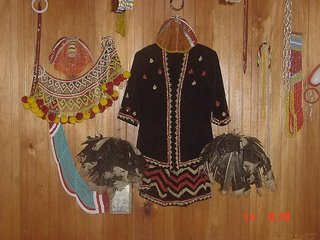
Bario and the Kelabit Highlands are one of Sarawak’s and South East Asia’s green cultural gems. Of importance not just to the State of Sarawak and Malaysia as a whole, but also to the whole world, the Highlands are a uniquely important as a global heritage site, combining cultural, hydrological and biological/wildlife resources of extraordinary value.
The Highlands are the cultural homeland of the Kelabit people, renowned for their rice, beadwork, basket making and great generosity of spirit. The farming culture is based upon wet padi cultivation and sustainable forest farming. The local wet padi rice, Bario Rice, was awarded a Slow Food Presidium in 2003 by the Turin-based Slow Food Movement and Kelabit cooking is famous for its use of fresh natural ingredients. The padi fields are surrounded by farmed hillsides growing fruits, herbs and vegetables and even a flock of sheep … more about them below!
The Highlands also represent one of the largest intact forested watersheds in South East Asia. Embracing almost the entire catchment area of the Upper Baram river, the forested valleys and mountains extend over more than 350,000 hectares. They not only protect the water supply of the internationally acclaimed Bario rice fields, but are also the last large unlogged refuge for many of Sarawak’s most iconic wildlife species, including hornbills, wild pheasants, butterflies and orchids.
The importance of Bario and the Kelabit Highlands as a cultural homeland, an intact forested watershed and important biological reserve has been recognized by the State Government & the International Timber Trading Organisation. Both have worked hard to create some of the most forward looking forestry policies and regulations in the world. So, with careful decision making and protection, the Highlands’ forests, farms and monuments should be in safe hands, cared for and protected by local people and by the State & Federal Governments - both of which are already widely respected for their careful socio-economic and socio-environmental planning.









 The journey took about 10 minutes. The Batu Ritung slanted and almost wanted to collapse. So, for those who interested to see it before it collapse, better go now :)
The journey took about 10 minutes. The Batu Ritung slanted and almost wanted to collapse. So, for those who interested to see it before it collapse, better go now :)

